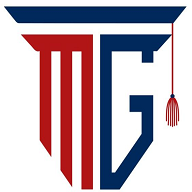📘 Course Description:
This course is designed for intermediate B1 English learners who want to refine their
grammar skills, expand academic vocabulary, and master formal writing styles. Emphasis is
placed on producing clear, well-structured, and grammatically accurate academic texts such
as essays, reports, and research papers. Students will also learn advanced grammatical
structures, cohesive devices, and discipline-appropriate vocabulary to improve both written
and spoken academic communication.
The course is ideal for university students, professionals, researchers, or anyone preparing
for academic environments where English is the medium of instruction.
🎯 Learning Outcomes:
By the end of this course, students will be able to:
📌 Grammar
● Use complex sentence structures accurately (e.g., relative clauses, passive voice,
conditionals).
● Apply advanced grammar in formal writing, such as noun phrases, parallelism, and
verb tense consistency.
● Edit writing for grammatical accuracy and stylistic appropriateness
📌 Academic Writing
● Plan, draft, revise, and edit academic essays and research-style papers.
● Write clear thesis statements, topic sentences, and coherent paragraphs.
● Use appropriate referencing and citation styles (APA, MLA, or others if applicable).
● Avoid plagiarism by paraphrasing and summarizing sources correctly.
📌 Academic Vocabulary
● Use formal, academic vocabulary accurately in writing and speech.
● Distinguish between informal and academic language.
● Use collocations, transitional expressions, and subject-specific vocabulary effectively.
📌 Communication Skills
● Participate in academic discussions using formal language and structured
arguments.
● Respond to peer and instructor feedback constructively.
Course Features
- Lectures 15
- Quizzes 6
- Duration 48 hours
- Skill level Intermediate
- Language English
- Students 1516
- Certificate No
- Assessments Yes
Curriculum
- 9 Sections
- 15 Lessons
- 12 Weeks
- 📚 Course Curriculum: Advanced Grammar, Academic Writing & Vocabulary0
- 🎯Week 1: Descriptive Language & Parts of Speech● Understanding academic tone and style ● Differences between academic and informal writing ● Overview of the writing process (planning, drafting, revising)3
- 🎯Week 2: Generating ideas & Tenses in Use● Complex and compound-complex sentences ● Subordination and coordination ● Sentence variety and avoiding run-ons/fragments7
- 3.1Advanced Lesson 3
- 3.2Quiz advanced lesson 3 (Fill in)10 Minutes10 Questions
- 3.3Advanced Quiz 3 (complete)10 Minutes10 Questions
- 3.4Advanced Quiz 3 ( multiple choice)5 Minutes5 Questions
- 3.5Advanced Lesson 4
- 3.6Advanced Quiz 4 ( Fill in)8 Minutes8 Questions
- 3.7Advanced Quiz 4 multiple choice5 Minutes10 Questions
- 🎯Week 3: Academic Paragraph Writing● Topic sentences and paragraph unity ● Supporting details and coherence ● Transitions and logical flow2
- 🎯Week 4: Essay Structure I – Argumentative & Expository Writing● Essay outlines and thesis statements ● Introduction, body, and conclusion structure ● Paragraph development strategies2
- 🎯Week 5 :Advanced Grammar II – Verb Tense & Voice● Perfect tenses and tense consistency ● Passive voice in academic writing ● Modality for hedging and formality1
- 🎯Week 6: Vocabulary Development I – Academic Word List (AWL)● Introduction to AWL sublists ● Using context to understand new words ● Word families and affixation2
- 🎯Week 7: Advanced Grammar III – Noun Phrases & Parallelism● Expanded noun phrases ● Appositives and modifiers ● Correct use of parallel structure in writing2
- 🎯Week 8: Final Oral & Written Assessment● Writing different academic essay types ● Using appropriate structures and transitions ● Developing arguments with examples and evidence2
Requirements
- ✅Minimum Level: Upper-Intermediate to Advanced (B2–C1 on the CEFR scale)
- ✅ 2. Previous Coursework or Experience
- ✅ 3. Academic or Professional Background (Optional but Preferred)
- ✅ 4. Technical Requirements (for online courses)
- ✅ 5. Commitment






